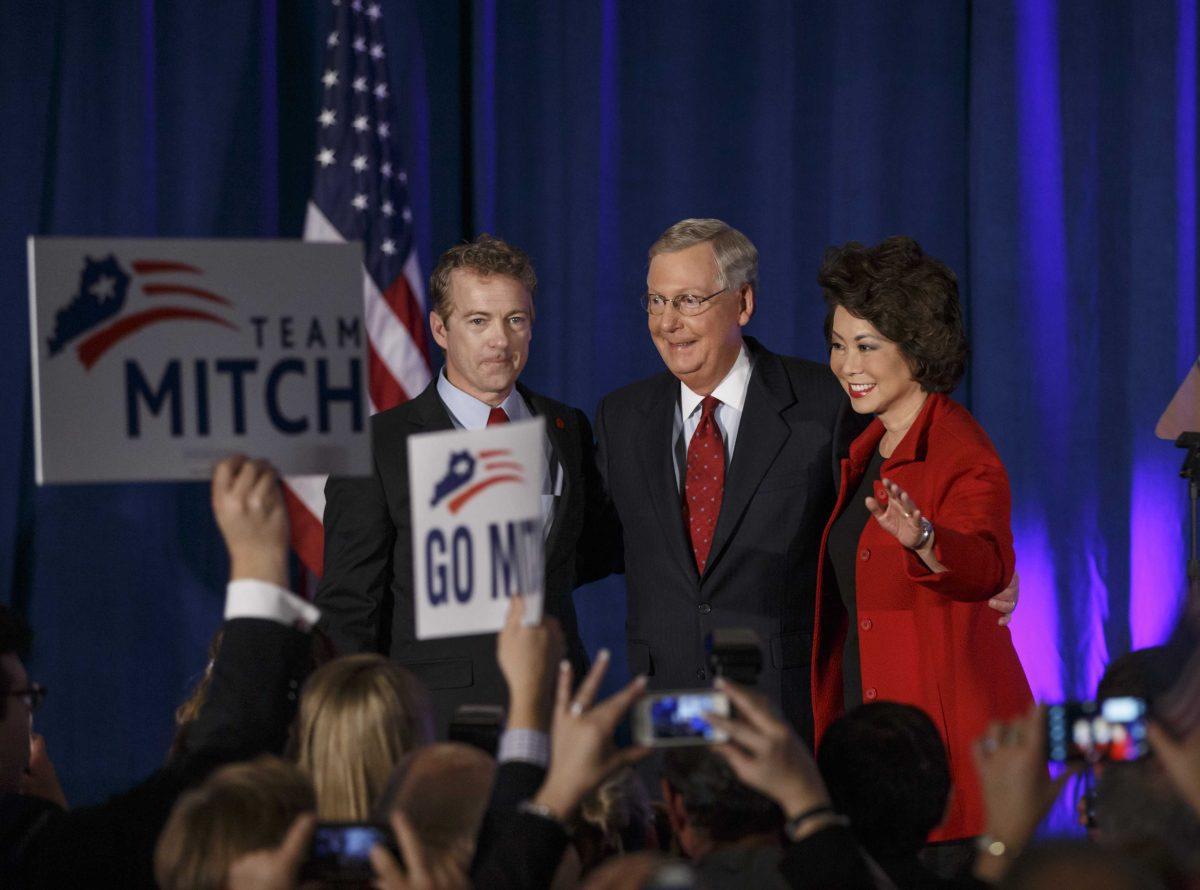For a while now, Democrats have had it easy.
Since 2008, they haven’t had the responsibility of defining their own identity as a party because they’ve had President Obama to do that. His agenda necessarily defined that of the entire party, and though his record and popularity are mixed at best, there haven’t been any real voices of dissent from within the Democratic Party.
The Republicans, in turn, have defined themselves by their opposition to the president.
Everything he has done, proposed, thought of or dreamed about has been ripped apart by Republicans.
Say what you will about how tasteful it is, but it’s a solid strategy. It’s gotten Republicans a majority in both houses of Congress, and Rep. Bill Cassidy, R-La, looks ready to take Louisiana’s Senate seat simply by associating Sen. Mary Landrieu’s, D-La, name with Obama’s as often as possible.
But while shouting down Obama and his supporters may have been effective when Republicans held just one house and were fighting to gain a majority, they face a problem now that they’ve gained control of the legislative branch: They’ll be expected to legislate.
Without control, it was easy for Republicans to just throw up their arms and say, “We told you!” every time things went against Obama, but now they’ll be expected to bring their own solutions. For the record, trying to repeal every law Obama ever signed doesn’t count as a solution.
It raises a question of identity for the Republicans.
When everyone’s mouths are frothing with Obama-hate, it can be tough to distinguish between Tea Party Republicans and their more moderate compatriots. But there are differences in ideology, and it’s this divergence that could determine the future of the party’s identity.
So what direction does the party take from here? It’s not enough anymore to simply shut down anything the president says. At least until the next presidential election, Republicans will be expected to lead — and that means cooperating with the president.
To their credit, GOP leaders — establishment Republicans who will likely take power positions when Congress reconvenes — have already begun on the path of presidential reconciliation. In the past week, they’ve said no to the possibilities of another government shutdown or attempting to repeal the Affordable Care Act.
The likeliest possibility is that the rest of the party will fall in line with this slightly-more-moderate approach, but the more-conservative branches of the party will still fight to antagonize the president. If the party establishment is unable to appease them or get them in line, we may see yet another term of gridlock — though this one will be characterized by party infighting rather than inter-party clashes.
It’s vital that the Republican leadership comes up with a concrete plan to enforce party solidarity if it wants to make the most of Obama’s lame-duck term. Otherwise, these two years will be just another chapter in a presidential term that will be remembered for change promised and not delivered.
Gordon Brillon is a 21-year-old mass communication senior from Lincoln, Rhode Island. You can reach him on Twitter @TDR_GBrillon.
Opinion: Republicans face identity crisis after midterms
November 9, 2014
Senate Minority Leader Mitch McConnell, R-Ky., center, celebrates with Sen. Rand Paul, R-Ky., left, and his wife, former Labor Secretary Elaine Chao, at an election night party in Louisville, Ky.,Tuesday, Nov. 4, 2014. McConnell won a sixth term in Washington, with his eyes on the larger prize of GOP control of the Senate. The Kentucky Senate race, with McConnell, a 30-year incumbent fighting off a spirited challenge from Democrat Alison Lundergan Grimes, has been among the most combative and closely watched contests that could determine the balance of power in Congress. (AP Photo/J. Scott Applewhite)
More to Discover








